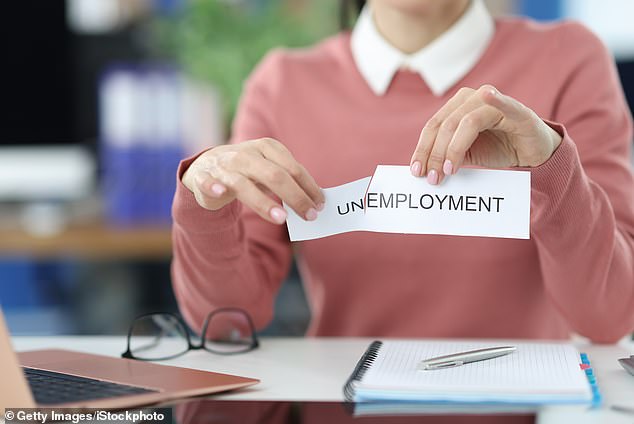Table of Contents
- S&P notes that service companies “commented widely” on hiring moratoriums
- In the latest Budget, Rachel Reeves announced an increase in National Insurance rates
Service industry employment fell at its fastest pace in nearly four years at the end of 2024, as employers reacted to weaker demand and rising payroll costs.
The closely watched S&P Global UK Services Purchasing Managers’ Index (PMI) shows the fall in December staff numbers was the biggest since January 2021.
Excluding years distorted by the Covid-19 pandemic, it was the steepest drop in more than 15 years.
The monthly survey found that 23 percent of respondents reported a drop in workforce levels, compared to 12 percent who had indicated an increase.
The S&P noted that service companies “commented widely” about hiring moratoriums or not replacing those who leave due to higher employee costs.
In October, Chancellor Rachel Reeves revealed that employers would pay a 15 per cent National Insurance tax on staff salaries exceeding £5,000 from April, instead of the current rate of 13.8 per cent on salaries over £9,100.
S&P said there was “anecdotal evidence” that customer confidence was declining following the announcement of an upcoming increase in NI contributions.
Letting go: Service industry employment fell at its fastest pace in nearly four years in December due to weaker demand and rising payroll costs
Reeves further stated that the national living wage would rise by 77p to £12.21 an hour, while the national minimum wage for 18-20 year olds would soar by 16.3 per cent to £10 an hour.
Many prominent retailers have warned that the measures could force them to cut jobs and wages, raise prices or close stores.
Tim Moore, chief economic officer at S&P Global Market Intelligence, said: “Faced with subdued demand conditions and rising employment costs, many service providers opted to reduce staff hiring and delay replacing positions in December.”
It also noted a “post-budget dip” in business optimism amid concerns about rising payroll expenses and a “general unease about the business investment climate.”
At the same time, S&P said input cost inflation rose at its fastest pace since April due to rising wages and raw material costs, while overall new orders were “near stagnation.” throughout the service economy.
However, the S&P still gave a final PMI reading of 51.1 for business activity last month, up from 50.8 in November, and for the 14th consecutive month it surpassed the neutral 50.0 mark.
Any number above 50 indicates growth, while all numbers below that figure denote contraction.
The S&P figures come four days after its manufacturing PMI fell one point to an 11-month low of 47 in December.
Output, employment and new orders declined at a faster rate than the previous month due to customer destocking, lower market confidence and companies restructuring ahead of the next increase in labor costs and National Insurance rates.
DIY INVESTMENT PLATFORMS

AJ Bell

AJ Bell
Easy investing and ready-to-use portfolios

Hargreaves Lansdown

Hargreaves Lansdown
Free Fund Trading and Investment Ideas

interactive inverter

interactive inverter
Fixed fee investing from £4.99 per month

sax

sax
Get £200 back in trading fees

Trade 212

Trade 212
Free trading and no account commission
Affiliate links: If you purchase a This is Money product you may earn a commission. These offers are chosen by our editorial team as we think they are worth highlighting. This does not affect our editorial independence.


